Thank you to the Whyte Museum of the Canadian Rockies for granting permission to the Park Warden Service Alumni to post this interview on our website.
Park Warden Service Alumni Society of Alberta
Oral History Project – Fall 2010
Interview with Andy Anderson
Interviewed by Christine Crilley-Everts
October 21, 2010– Parksville, British Columbia
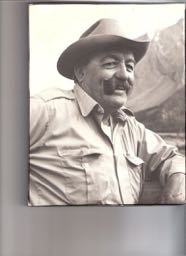
Place and Date of Birth: Portage La Prairie, 1927.
Occupations: After serving in the Second World War and working as a Locomotive Engineer on the railroad in Jasper and on the DEW (Distant Early Warning Line) up north, Andy started as an Assistant warden in Banff National Park. Following his year as an Assistant warden he worked in the Bryant Creek, Windy and Cyclone districts before becoming the Chief warden of Yoho National Park. He then became the Chief warden of Banff National Park during the time of centralization. He remained Chief warden in Banff until he retired in 1982. After his warden career he became the Environmental Coordinator for the Highways.
Additional Information: In 1987, he and his wife Barb moved to Vancouver Island. Andy continues to be an avid golfer. He and his wife loved their time in the backcountry of Banff National Park. They both enjoyed the challenges of the Warden Service and Andy remembers with laughter his many adventures and successes.
(0:00:00) To go back to the beginning (when) I hired on (with) the Warden Service, I had been working in Jasper as a railroader, as a Locomotive Engineer actually. Being a Locomotive Engineer in the days of the steam engine it was an art form. There were probably ten percent of the Engineers that were really good at running the steam engine. When the diesel came in, it was like driving a street car.
(0:00:59) When I started on with the wardens, I really was completely unqualified! I really didn’t have the background for it, (such as experience) traveling with horses and skiing. I didn’t ski at all in fact. I didn’t do much hiking or that sort of thing. But I liked to go out on hunting trips. My background wasn’t there, but at that time the philosophy was to hire…Assistants to work under a warden and he taught the basics and plus they had a lot of warden Schools. We had warden Schools on everything from horseback riding to looking after telephone lines. The climbing and the skiing (schools) came in just at the same time I came in. (Before that) any mountain that a horse couldn’t get up, a warden didn’t see any reason to go up either!
(0:02:30) I didn’t really hire on with the idea of (the Warden Service) being a career. It was boredom I think. To test myself against living out in the wilderness and this sort of thing. I had to learn, and there was one thing about it at that time because of the changes that were taking place in the Warden Service, things kept coming up. I went back to School, to (get) Technical School training. (At) wardens Schools is where you learned most things. That philosophy continued right up to the late 1960s. People that (had) Tech School requirements (were then hired on, before that) the educational level was immaterial almost. Whether you were going to have the ability to handle yourself in the backcountry (was what was important). At any rate when I hired on I was unfortunate at the start (because) the District Warden I worked under was a %$#^!. He actually went on to become a Chief warden. That was the dumbest thing in the world because it (ruined it for) the people that followed him. I followed him when I went to Yoho and he left all the parks in complete chaos. I was only there under him for a short time.
(0:04:54) Wally McPhee, was an example of the wardens at that time. Wally was probably one of the best. He was certainly highly respected by all of his peers. He became the District Warden in Lake Louise. The business community, (and) everybody he came in contact with had the utmost respect (for him). It wasn’t that he was just a nice guy. Everybody done what was right or else with him, because he didn’t fall for anything! Like I say he was very highly respected and highly capable. He taught me a lot of the horsemanship aspect (of the job).(0:05:54) In those days actually…(there was) a concept in the Warden Service, they had a phrase, it was “Use them or loose them” that was Parks. We had vast areas of parks that nobody was using. Canadians, in those days, and this is back in the late 1950s, they had all the wilderness they needed in their backyard. There was no appreciation of parks. The Europeans, they really appreciated the parks and most of them used the parks. At any rate, with that philosophy the protection aspect was not high.(0:07:07) When I went in as the Chief warden in Yoho, I went back into all the old files there and did some research to get some background information. And one of the things I found was a letter from the Superintendent that went back into the 1950s. He was writing to Ottawa telling them that there was a logging company that wanted to log the Amiskwi Valley and if they could get this logging company to come in, they could build a road up (the valley). Selling the idea to bring a logging company (into the national park)? Which they did. That was one horrible mess. Logging did take place in the parks. Parks at that time didn’t have the restrictions that the provinces had, and the provinces didn’t have much!
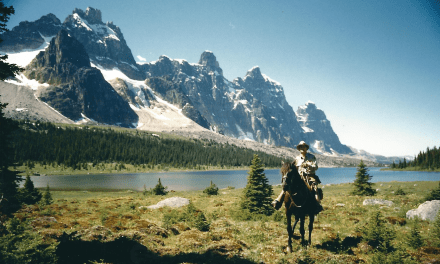
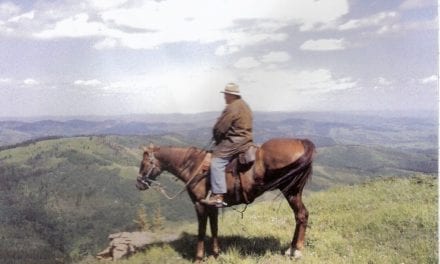
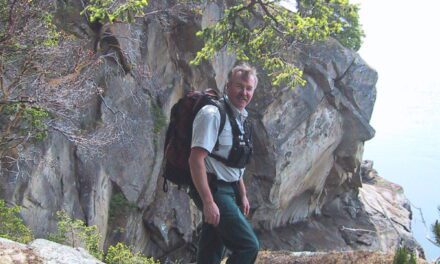
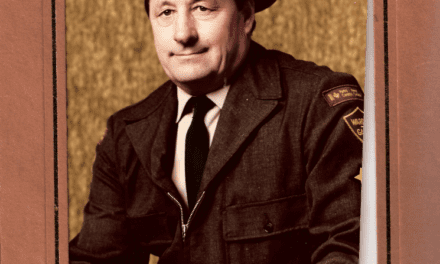
Excellent history of what it was like to be a warden from Andy Anderson. Thanks for posting this story.